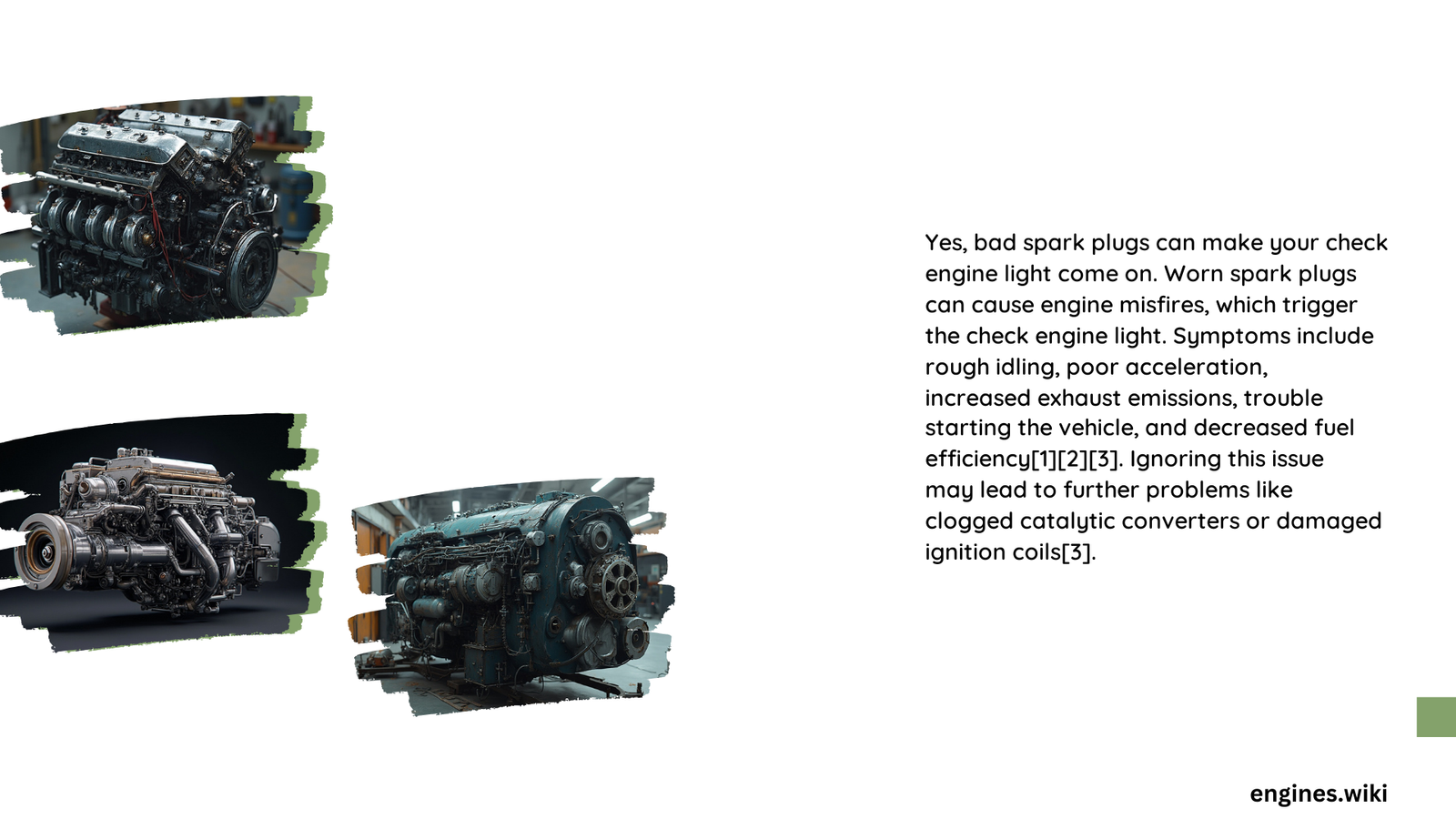When your vehicle’s check engine light illuminates, spark plugs could be the hidden culprit behind this mysterious warning. Bad spark plugs can indeed cause your check engine light to activate, signaling potential combustion and performance problems that demand immediate attention. Understanding the intricate relationship between spark plug condition and your vehicle’s onboard diagnostic system is crucial for maintaining optimal engine health and preventing costly repairs.
Will Bad Spark Plugs Trigger the Check Engine Light?
Spark plugs play a critical role in your vehicle’s combustion process, and when they malfunction, they can absolutely trigger the check engine light. The onboard computer (OBD-II system) continuously monitors engine performance and will detect irregularities caused by faulty spark plugs.
How Do Spark Plugs Cause Check Engine Light Activation?
- Engine Misfire Detection
- Faulty spark plugs disrupt the combustion cycle
- OBD-II system registers cylinder misfires
-
Generates specific diagnostic trouble codes (DTCs)
-
Common Misfire Error Codes
| Code | Description |
|——|————-|
| P0300 | Random/Multiple Cylinder Misfire |
| P0301-P0308 | Specific Cylinder Misfire |
| P0350-P0358 | Ignition Coil/Spark Plug Circuit Malfunction |
What Symptoms Indicate Spark Plug Problems?
Recognizing spark plug issues before they trigger the check engine light can save you from potential engine damage:
- Rough engine idling
- Decreased acceleration performance
- Increased fuel consumption
- Difficulty starting the vehicle
- Unusual exhaust emissions
- Reduced overall engine power
Diagnostic Strategies for Spark Plug Issues
Tools and Techniques
- OBD-II Scanner: Reads and interprets diagnostic trouble codes
- Visual Inspection: Check spark plug condition and wear
- Compression Test: Measures cylinder performance
- Electrical Resistance Test: Evaluates spark plug wire integrity
Cost and Resolution Expectations
- Diagnostic Service: $50 – $150
- Spark Plug Replacement: $50 – $300
- Average Resolution Time: 1-2 hours
Prevention and Maintenance Tips
- Follow manufacturer’s recommended spark plug replacement intervals
- Use high-quality spark plugs
- Perform regular vehicle maintenance
- Address check engine light warnings promptly
Technical Insights
Spark plugs generate the electrical spark that ignites the air-fuel mixture in your engine’s combustion chambers. When they degrade, this process becomes inefficient, causing:
- Incomplete fuel combustion
- Increased exhaust emissions
- Potential catalytic converter damage
- Reduced fuel efficiency
When to Seek Professional Help
- Persistent check engine light
- Multiple misfire codes
- Significant performance degradation
- Complex diagnostic requirements
Conclusion

Bad spark plugs can definitively make your check engine light come on. Proactive maintenance, timely diagnostics, and understanding your vehicle’s warning signals are key to preventing extensive engine damage.
